
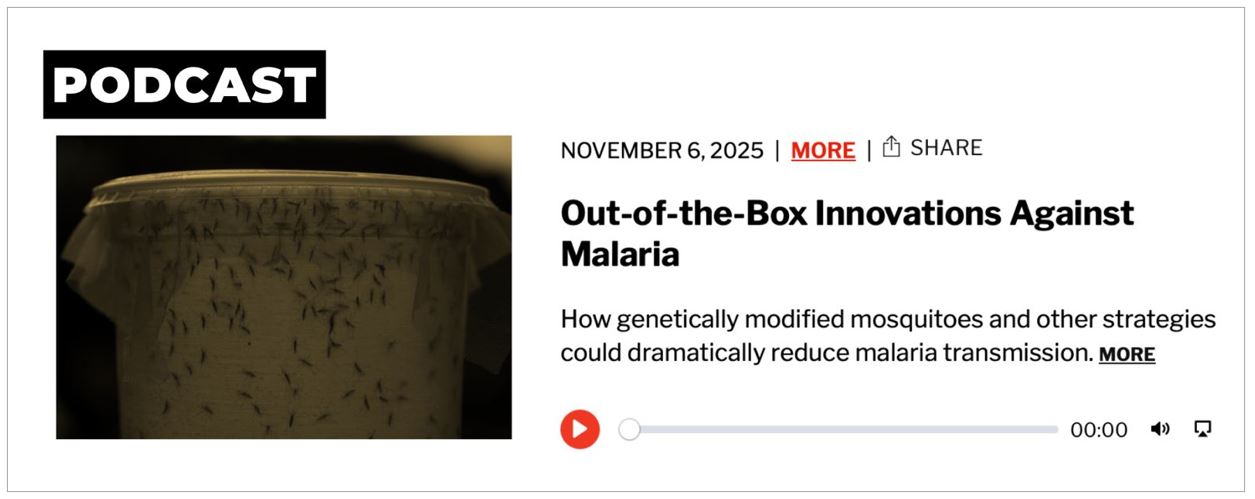
snip from Foreign Policy
PODCAST: Ifakara scientists featured on Foreign Policy’s “The Threshold”
On November 6, 2025, two Ifakara Health Institute scientists were featured in the latest episode of The Threshold. This is a Foreign Policy podcast exploring the global fight to end infectious diseases and th…
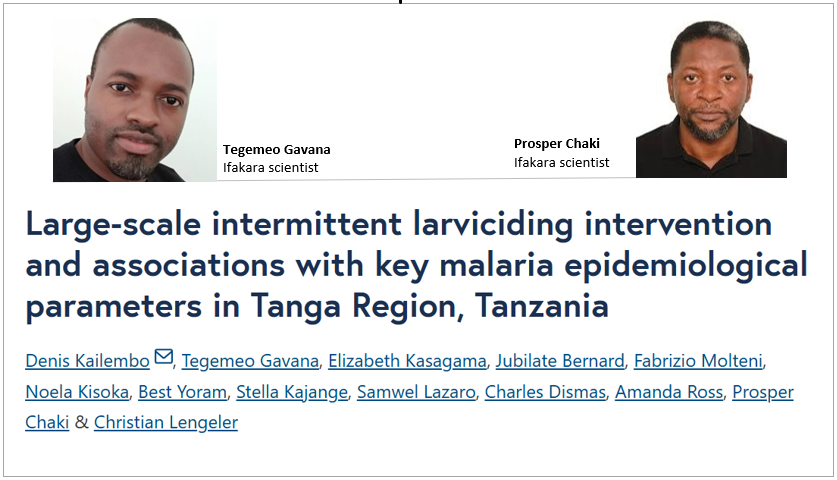
A snip from the Malaria Journal with insets of Ifakara Health Institute scientists, Tegemeo Gavana and Prosper Chaki, who contributed to the studies. GRAPHIC | IFAKARA Communications
LARVICIDING: Small gains, big value in the fight against malaria
New studies conducted in Tanzania’s Tanga Region has found that larviciding – treating water bodies to kill mosquito larvae – has limited impact on reducing malaria transmission, even though the appr…
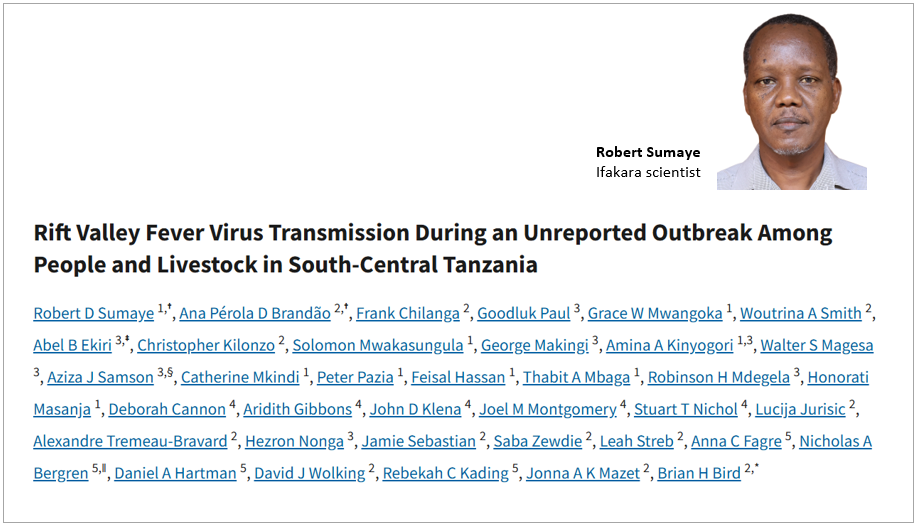
A snip from the Viruses journal with an inset of Ifakara Health Institute scientist, Robert Sumaye, the co-lead author of the study. GRAPHIC | IFAKARA Communications
WARNING: Rift Valley Fever silently circulating undetected in Tanzania
Rift Valley fever (RVF), a viral disease affecting both animals and humans, is circulating year-round in parts of Tanzania without being detected by routine surveillance, according to new research published on Vir…
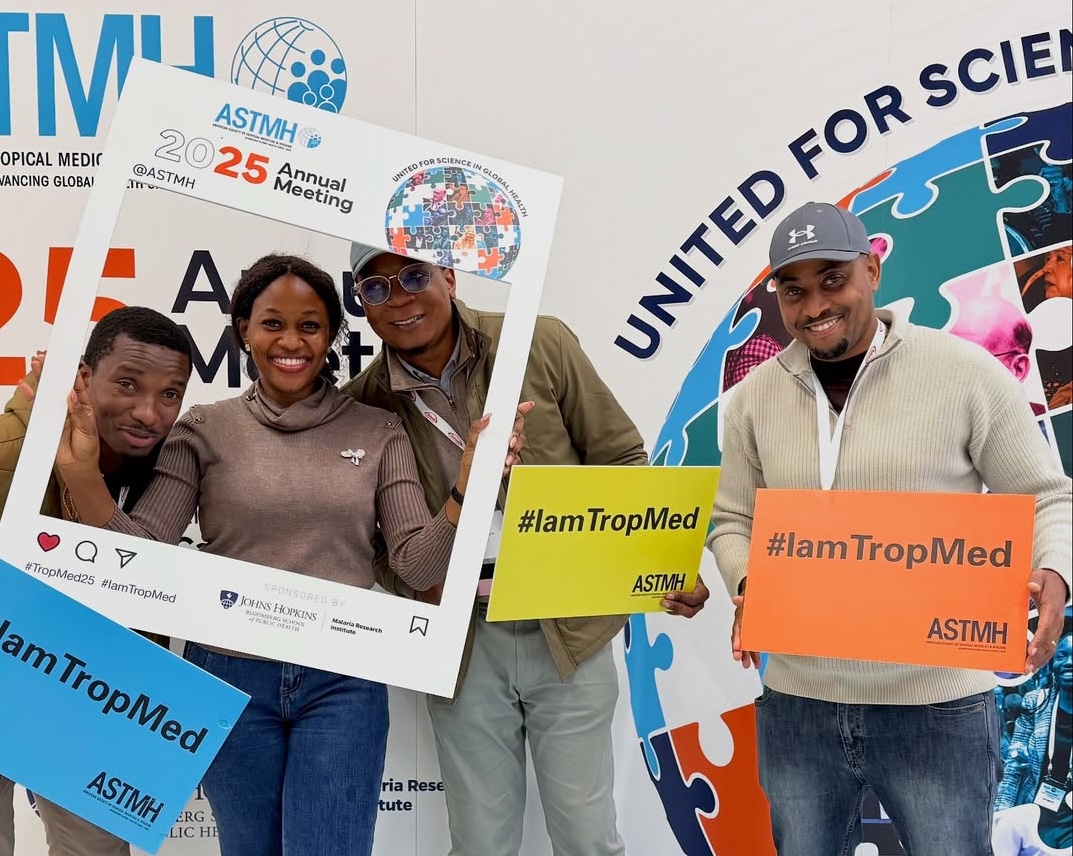
Group photo of a few Ifakara scientists in attendance. PHOTO: Dr Walter Manyiri
#ASTMH2025: Ifakara Joins Global Experts at tropical medicine forum
The Ifakara Health Institute took part in the 74th Annual Meeting of the American Society of Tropical Medicine …

A snip from the Oct 2025 edition's featured story. GRAPHIC | IFAKARA Communications Nov 10, 2025
MTAFITI: Health Gains at a Crossroads
October 2025 edition of "MTAFITI" - the monthly news and events round-up of the Ifakara Health Institute - i…
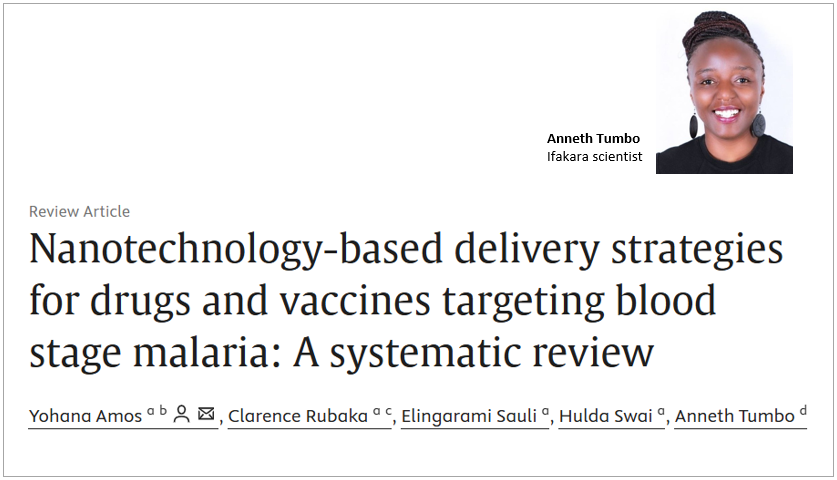
A snip from the Nanomedicine journal with an inset of Ifakara Health Institute scientist Anneth Tumbo who contributed to the study. GRAPHIC | IFAKARA Communications
NANOTECHNOLOGY: New hope for malaria treatment and prevention
In a newly published review, Tanzanian scientists highlight the promising role of nanomedicine in improving malaria treatment and prevention. Their analysis points especially to the potential of nanotechnology in trea…

A snip from the eClinicalMedicine, part of The Lancet Discovery Science, with insets of Ifakara Health Institute scientists Aina-ekisha Kahatano and Maxmillian Mpina who contributed to the study. GRAPHIC | IFAKARA Communications
MILESTONE: New malaria vaccine candidate shows promise in Tanzania trial
A new malaria vaccine candidate, named SUM-101, has shown encouraging results in its first trial among adults in Tanzania who were already exposed to malaria. The study found that the vaccine was safe, well-tolerated,…

Graphic: Ifakara Communications
ELECTION DAY: Ifakara wishes Tanzanians peaceful, orderly elections
Ifakara Health Institute wishes all Tanzanians a peaceful and orderly General Election today, Wednesday, October 29, 2025. As the nation elects i…
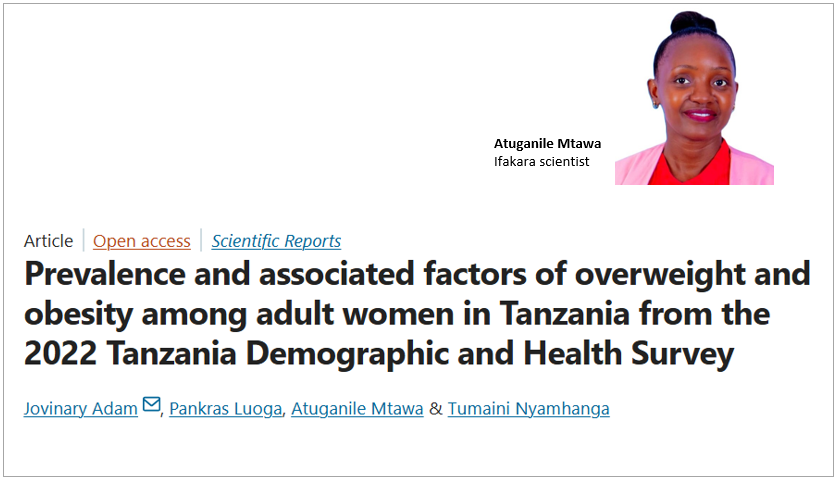
A snip from the Scientific Reports journal with an inset of Ifakara Health Institute scientist Atuganile Mtawa, who contributed to the study. GRAPHIC | IFAKARA Communications
LIFESTYLE: Tanzania sees a worrying rise in overweight and obesity among women
At least one in three Tanzanian women – that’s 36 in every 100 – who are aged between 20 and 49 years are either overweight or obese, a new study has revealed, raising concerns about the growing burd…
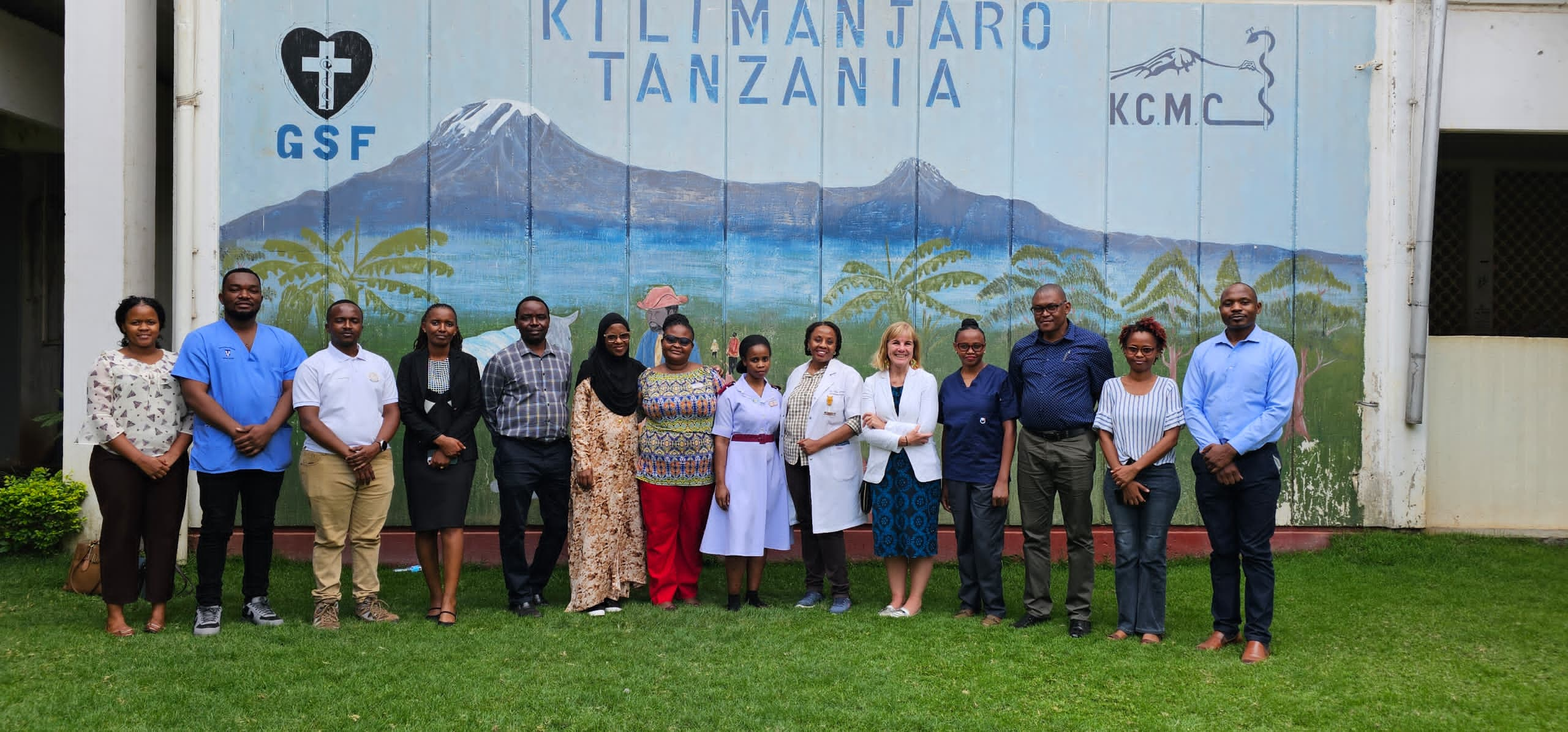
Group photo of the meeting attendees. PHOTO: IFAKARA Communications
LEARNING: Inter-facility experience exchange to strengthen newborn care
From October 20 to 24, 2025, the NEST360 program in Tanzania organized an Inter-Facility Learning Session at Kilimanja…
